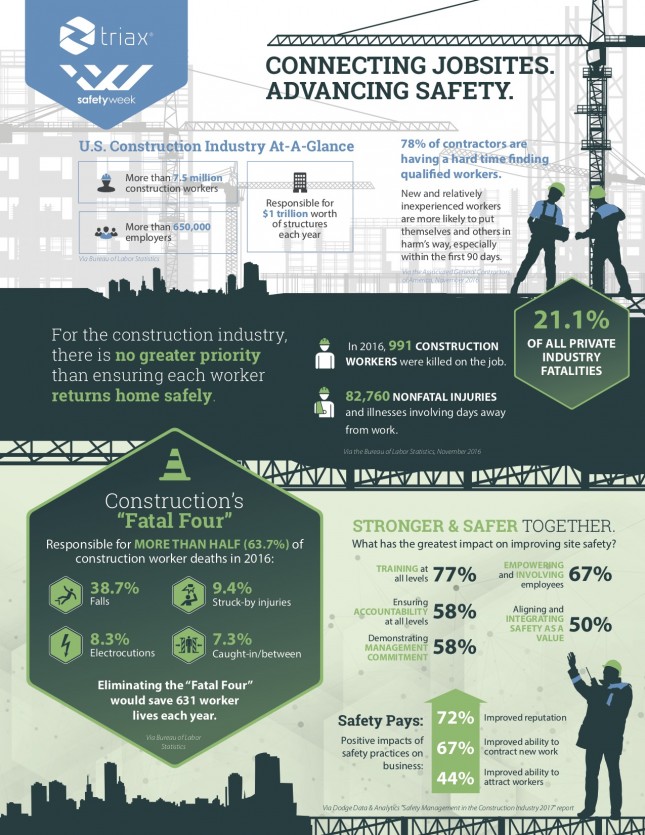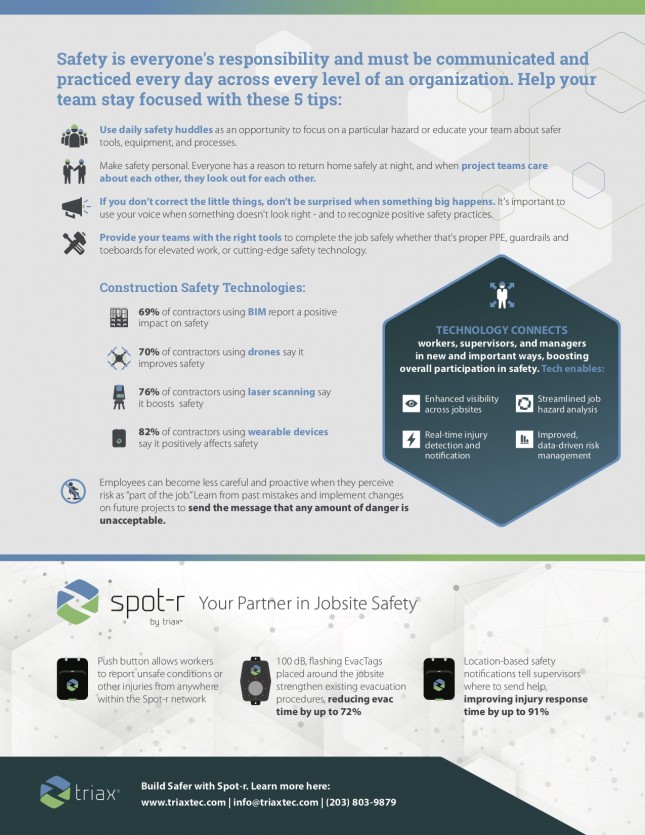NORWALK, Conn. (May 1, 2018)—In recognition of Safety Week, taking place May 7-11, 2018, Triax Technologies Inc., provider of technology for the connected jobsite, shared key strategies construction firms can implement at all levels of their organizations to improve safety outcomes on the jobsite.
According to the Unites States Bureau of Labor Statistics, more than one out of five private industry fatalities occur in construction, and the health and productivity of more than seven million U.S. construction workers are impacted by non-fatal injuries on the jobsite. As safety remains a top industry priority, construction organizations and industry stakeholders are increasingly turning to emerging technologies to help address this concern.
“Through our work with contractors, we have seen time and time again that their number one priority is ensuring that each worker returns home safely at the end of the day,” said Chad Hollingsworth, chief executive officer (CEO) and co-founder of Triax Technologies. “We are committed to doing our part to promote a proactive, data-driven safety environment. By developing Internet of Things (IoT) tools to connect workers, site supervisors and the back office, we are enabling faster injury response, hazard reporting and near-miss investigation.”
Based on insights gained from the safety initiatives of leading contractors, Triax identified the following three best practices:
- Prioritize the industry’s most valuable resource. Recognizing that workers are experiencing risk on a daily basis, leading contractors are systematically empowering their crews to make safe choices every day. By prioritizing and investing in safety across the organization, these firms are communicating the value they place on their workforce. It’s important that everyone – from the CEO to the workers on site – participate in ongoing training and safety improvement. For example, sites can use daily safety huddles to focus on a particular concern and educate the team on safer tools, equipment and processes.
- Embrace the new technology ecosystem. In the last year, technology at the jobsite has moved beyond project management software to include wearables, sensors, robots and drones, which are all contributing to the overall safety culture. Eighty-two percent of contractors using wearables, for example, are reporting site safety improvements, according to the Dodge Data & Analytics Safety Management in the Construction Industry 2017 report.
- IoT-enabled technologies allow everyone to communicate safety issues across the jobsite in real time, and they automatically collect safety data from workers, equipment, tools and the environment, which can be aggregated in the cloud for actionable insights.
When combined with intelligent software and advanced analytics, IoT-based data gives management the insights to make faster, more informed decisions. It also helps them identify trends that can improve risk management practices, as well as predict and prevent potential incidents.
Avoid complacency. Employees can become complacent when they perceive risk as part of the job. Learn from past mistakes and implement changes on future projects to reduce risk and send the message that any amount of danger is unacceptable. Use data to document and recognize risky behaviors and investigate near misses. For more information, visit triaxtec.com.


